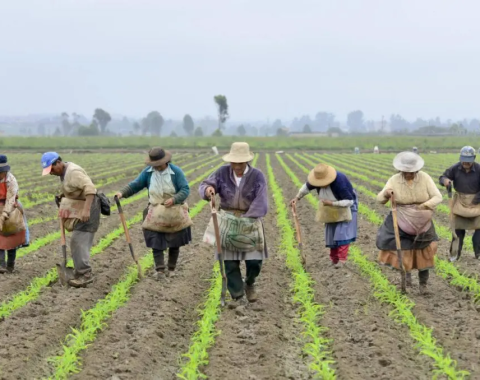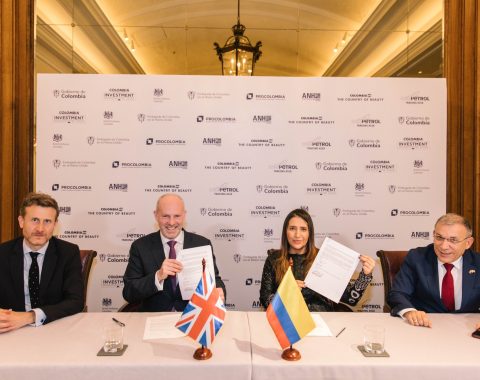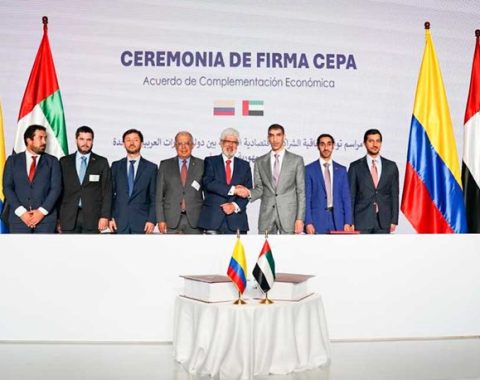In a historic event for bilateral relations, Colombia and the European Union have announced the start of negotiations for the signing of a Collaboration and Cooperation Agreement. This bilateral political agreement promotes diplomatic relations to the level of a Strategic Alliance, marking a milestone in Colombian foreign policy.
This process demonstrates the recognition of the strategic importance that the European Union grants to Colombia. The Collaboration and Cooperation Agreement will serve as a general framework for engagement, bringing together various mechanisms for discussion and cooperation on political issues, environment, security and defense, human rights, and drugs. This effort by the Government of Colombia, under the administration of President Gustavo Petro, reflects the recognition of the new multipolarity of the international system and the need to adjust Colombia’s international positioning strategies to this reality.
Why Colombia is Important for the EU:
Colombia, with its 50 million inhabitants and an area of 1.1 million km², is a strategic country in Latin America and acts as a bridge between South and Central America, as well as between regions facing the Pacific and those on the coasts of the Atlantic and the Caribbean. However, Colombia has faced more than 60 years of violence, leaving close to 250,000 deaths and more than eight million victims.
Violence in Colombia is deeply rooted in the high level of inequality, especially in rural areas where land ownership is alarming. This violence perpetuates inequalities, hindering economic and social development. Additionally, the weakness, or in some cases, the absence of the State in many peripheral areas has turned the country into one of the main global bases for cocaine production and trafficking.
Following the 2016 Peace Agreement between the Colombian government and the FARC, violence has decreased, but persists due to the far-right government from 2018 to 2022 failing to fulfill most of the agreement’s commitments. The implementation of this agreement has allowed progress in transitional justice and the reintegration of 13,000 FARC ex-combatants. President Petro has set the goal of achieving “Total Peace,” negotiating with all existing armed groups and fully complying with the 2016 Agreement, including land reform.
The EU has actively supported peace efforts in Colombia for over twenty years, investing more than 650 million euros through the EU Trust Fund for Peace in Colombia. This support has been crucial, especially when the peace process was in danger of collapsing.
This agreement between Colombia and the EU not only strengthens bilateral relations but is also crucial for the development of cooperation between the EU and Latin America and the Caribbean, especially at a time of geopolitical tensions and global challenges such as climate change. The EU and Latin America share the will to promote a pluralistic vision of the international community based on rules that protect weaker states from interference and attacks by more powerful countries.
Ongoing Cooperation Projects between the EU and Colombia
During his visit to Colombia in April 2023, the High Representative/Vice-President (HR/VP) Josep Borrell announced five new projects worth 26.5 million euros, with additional funding from EU member states. These projects aim to support Colombia’s ecological transition, combat climate change, and promote peace in the country.
Green Transition and Fight Against Climate Change: The first project focuses on the green transition and the fight against climate change. Colombia loses about 200,000 hectares of forest annually, an unsustainable situation for both the country and the world. President Petro’s government aims to reduce deforestation by 20% annually, and the EU supports this goal with new budgetary aid of 10.5 million euros. This project adds to 15 other ongoing ecological projects valued at 32.8 million euros.
Socioeconomic Integration of Migrants: Recognizing Colombia’s efforts to host a large number of migrants, including 2.6 million Venezuelans and repatriates, the EU announced a new 10 million euro project to support the socioeconomic integration of the migrant population and the economic training of host communities. Currently, there are ongoing EU projects valued at 58 million euros to assist migrants.
Support for Peace in Colombia: Additionally, two other projects, valued at 2 and 3.8 million euros respectively, will support peace in Colombia. The first will fund the Special Jurisdiction for Peace (JEP), and the second will assist victims of armed conflict and gender-based violence.
Humanitarian Aid for Communities Near the Nevado del Ruiz Volcano: Finally, the European Commission will allocate 200,000 euros for humanitarian aid to communities near the Nevado del Ruiz volcano, currently on orange alert. This package aims to help these communities prepare for any potential natural disaster.





